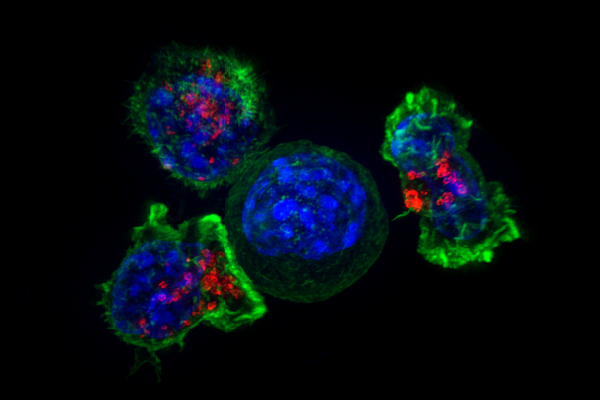
Immunotherapy is not only significantly less effective in liver cancer patients who previously had a liver disease called non-alcoholic steatohepatitis (NASH), but actually appears to fuel tumor growth, according to a Mount Sinai study published in Nature in March. NASH affects as many as 40 million people worldwide and is associated with obesity and diabetes.
The researchers led a large international collaboration to investigate immunotherapy’s effect on hepatocellular carcinoma (HCC), a deadly liver cancer, caused by NASH. They conducted a meta-analysis of three randomized phase 3 human trials that tested immunotherapy in HCC and found that in non-viral HCC cases, such as NASH-related HCC, therapy was significantly less effective than in viral-related cases.
In addition, this study found in animal models that immunotherapy with anti-PD1 inhibitors actually led to tumor growth instead of the intended effect of aiding the immune system to kill cancer cells and shrink the tumor. In these models, researchers identified immune cells called CD8+PD1+ as drivers of these phenomena. These cells were found to be dysfunctional and incapable of immunosurveillance.
“In addition to allowing clinicians to optimize treatment protocols based on the underlying liver disease, the knowledge obtained through this study will provide a backbone for the design of further combination treatments to overcome current limitations and improve survival for patients with these underlying liver conditions,” said senior and co-corresponding author Josep Llovet, MD, Ph.D., Founder and Director of the Liver Cancer Program at The Tisch Cancer Institute and Professor of Medicine (Liver Diseases) at the Icahn School of Medicine at Mount Sinai. “These results also highlight the need for refined therapeutic strategies aimed at treating both the tumor as well as the microenvironment associated with distinct underlying liver disease.”
Non-alcoholic fatty liver disease (NAFLD), a condition that is a precursor of NASH, is estimated to affect 25 percent of the population worldwide, and up to 20 percent of these patients will progress to having NASH. NASH is an emerging risk factor for HCC, which led to this study’s investigation of immunotherapy’s effects on NASH-related HCC. While immunotherapy has clinical benefit for hepatocellular carcinoma, this study’s findings are important because a quarter of all HCC patients have NASH.
Source: Read Full Article
